In a world with a Starbucks on virtually every street corner, hardly anyone would argue that yet another coffee shop is urgently needed anywhere. But the operators of regional coffee chains would beg to differ.

On the contrary, they see a major growth opportunity. The contemporary appetite for great-tasting java has helped to propel the coffee industry into what some call the “third wave” of its evolution. For decades, Americans traditionally got their daily cup of joe at a diner, a bakery or a café. Before long, such corporate coffee chains as Starbucks, Dunkin’ and Tim Hortons were driving the second wave of expansion. Now this third wave is being fueled by craft coffee makers offering coffee with one twist or another: more flavors, different types of brews and special store experiences.
To be sure, coffee is firmly entrenched in American culture. Nearly 65 percent of American adults drink coffee daily, and about 70 percent drink it weekly, according to the National Coffee Association. These coffee drinkers are also exhibiting a stronger yearning for gourmet, high-quality coffee and specialty coffee drinks. About 60 percent of all the coffee consumed today is gourmet-quality, according to the association.
“There are different types of customers for different types of coffee, but what you’re seeing is that coffee is everywhere”
Thus, corporate coffee chains are ubiquitous not only on street corners, but also at malls and airports and in hotel lobbies. None of this is to suggest that coffee consumers are a one-size-fits-all group, notes Brandon Singer, a Cushman & Wakefield executive director. Some coffee shops are geared more toward the grab-and-go customer looking to refuel and immediately take off again, while others offer a quiet and inviting location in which their patrons can slow down, hang out and read a book or leaf through a magazine, check their phones, or work on their laptops. “There are different types of customers for different types of coffee, but what you’re seeing is that coffee is everywhere,” said Singer.
While big names like Starbucks offer retail landlords good credit and predictable traffic flow, smaller regional chains have gained a significant foothold with their loyal followings and local appeal. Among these are Blue Bottle Coffee, La Colombe Coffee Roasters, Philz Coffee and dozens of others.
“I do think that these local and regional companies are a great option for property owners if they can bring that neighborhood following,” said Jay Coldren, a managing director at Streetsense, a design and strategy firm that specializes in retail, restaurant, hospitality and real estate. These local and regional coffee companies have more of a homegrown feel that sets them apart from the larger corporate chains, Coldren says.
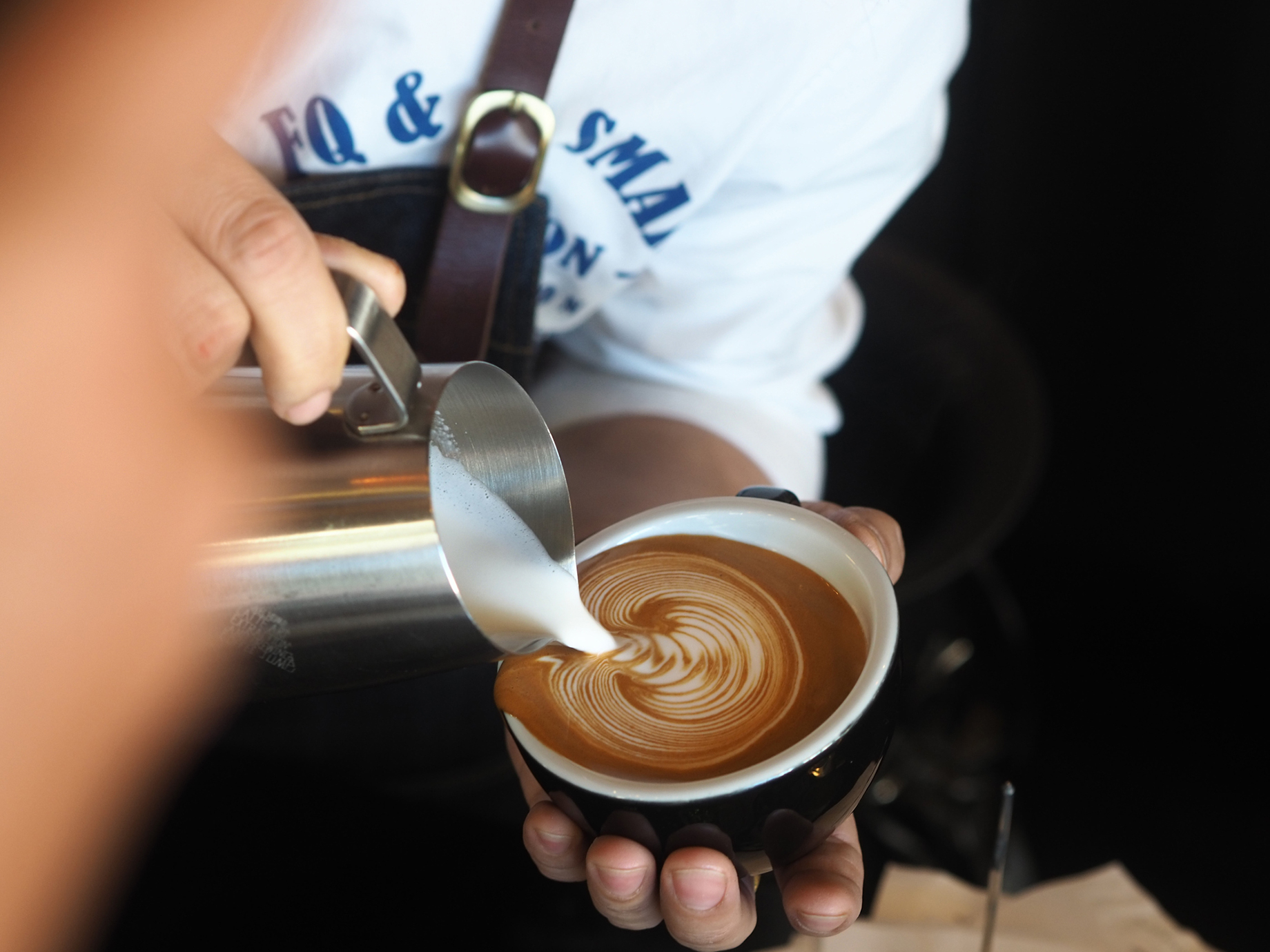
Some larger shopping centers have found that they can accommodate multiple coffee shops. Starbucks, for one, can easily cohabitate with other brands enjoyed by the Millennial set looking for an alternative brand, such as La Colombe, notes Anjee Solanki, national director of retail services at Colliers International. “We have tested this theory, and sales for Starbucks actually increased after bringing in another coffee tenant,” Solanki said.
Local and regional chains are fighting for a foothold in a market where growth is slowing. The U.S. coffee and snack shop category generated an estimated $50.7 billion in annual revenues in 2018, according to IBISWorld. But the research firm also notes that domestic growth is declining from an average annual rate of 4.6 percent over the past five years to a projected rate of 1.4 percent over the next five.
There are a variety of ways that coffee chains are working to differentiate themselves and build a following in this competitive coffee market. Some are showcasing new brewing techniques, such as nitro coffee (coffee infused with nitro gas). Other craft coffee makers are adding healthier concoctions to their menus, such as mushroom-infused blends that reportedly boost immunity; buttered coffee that boasts “healthy” fat; or cascara coffee, which uses the fruit from coffee plants to add fiber, protein and antioxidants. “We’re seeing all of this New Age approach to coffee,” said Singer.
Check out these growing regional chains:
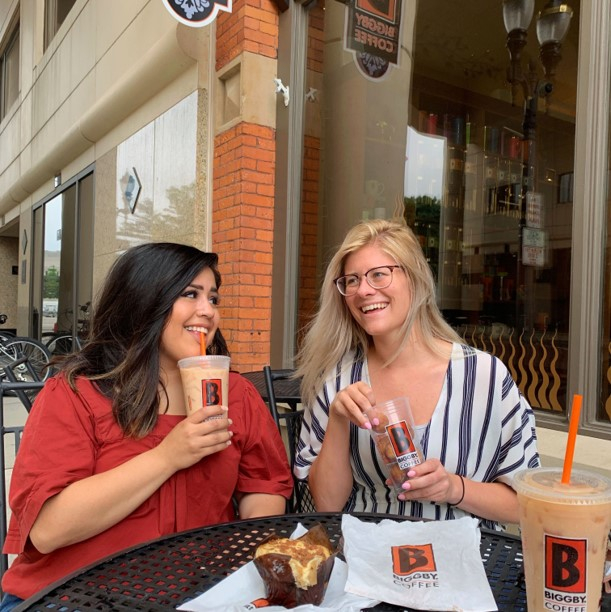
Biggby Coffee
Founders Bob Fish and Michael McFall opened the first Biggby Coffee shop in East Lansing, Mich., in 1997. The company is known for such signature drinks as the Teddy Bear (a white-chocolate and caramel latte) and raspberry cream mocha latte. The company started franchising in 1999 and now exceeds 250 units across eight states. It intends to roll out about 50 new shops this year and has a 10-year plan beyond that to reach 1,500. Besides Michigan, Biggby Coffee operates in Florida, Illinois, Indiana, Kentucky, Ohio, South Carolina and Wisconsin, and the company has signed leases for this year in New Jersey and North Carolina. One model the company is using to drive growth is a freestanding, prefab modular building with a double drive-through that can easily locate in the parking lot of a shopping center or large big-box store.
For real estate information, contact Jessica Martin, senior real estate specialist, at jmartin@biggby.com.
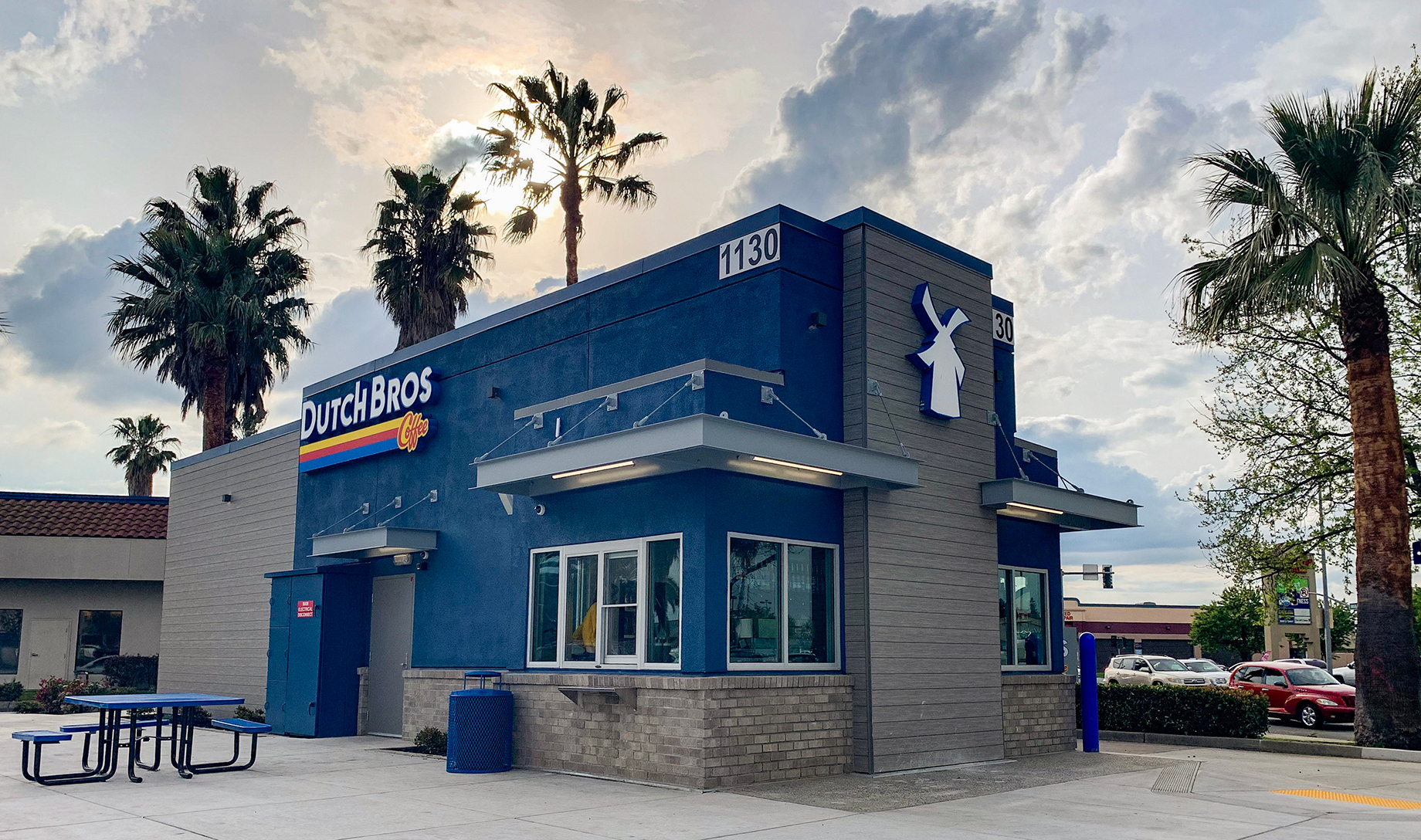
Dutch Bros Coffee
Brothers Dane and Travis Boersma launched their company in 1992 after deciding to convert the family dairy farm in Oregon into a coffee business. Dutch Bros Coffee now claims to be the country’s largest privately held drive-through coffee company, with nearly 400 shops across seven states and upwards of 12,000 employees. Its coffee kiosks serve specialty coffee drinks, smoothies, freezes, teas, a private-label Dutch Bros Blue Rebel energy drink and nitrogen-infused cold brew coffee. Following a capital infusion from a minority investor in 2018, the company announced plans to double in size, to about 800 shops, by 2023. Currently, Dutch Bros operates in the Western U.S. states of Arizona, California, Colorado, Idaho, Nevada, Oregon and Washington. Dutch Bros has plans to open about 70 additional shops this year and to expand into New Mexico and Utah. The typical size of its newer units is approximately 850 square feet, on 20,000-square-foot lots.
For real estate information, contact Aaron Harris, vice president of real estate and development, at aaron.harris@dutchbros.com.
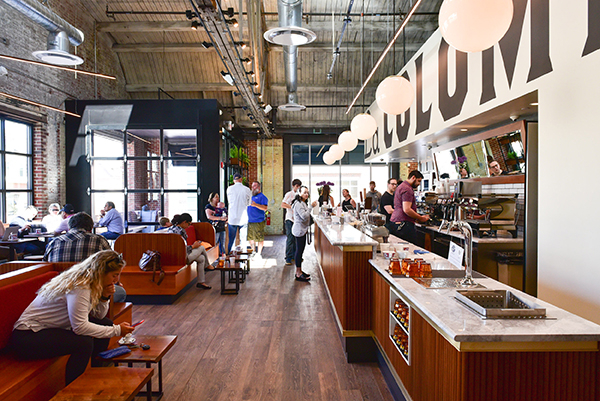
La Colombe Coffee Roasters
Todd Carmichael and J.P. Iberti founded La Colombe with one simple goal: to provide Americans with better coffee. They opened their first shop in 1994, in Philadelphia. The two have continued to introduce innovative coffee drinks — including on-tap cold-brew lattes, ready-to-drink canned coffee beverages and more. The company has grown to about 30 shops across Philadelphia; Boston; Chicago; Los Angeles; New York City; and Washington, D.C., and it has plans to roll out an undisclosed number across new markets this year and next.
Information available at Lacolombe.com.
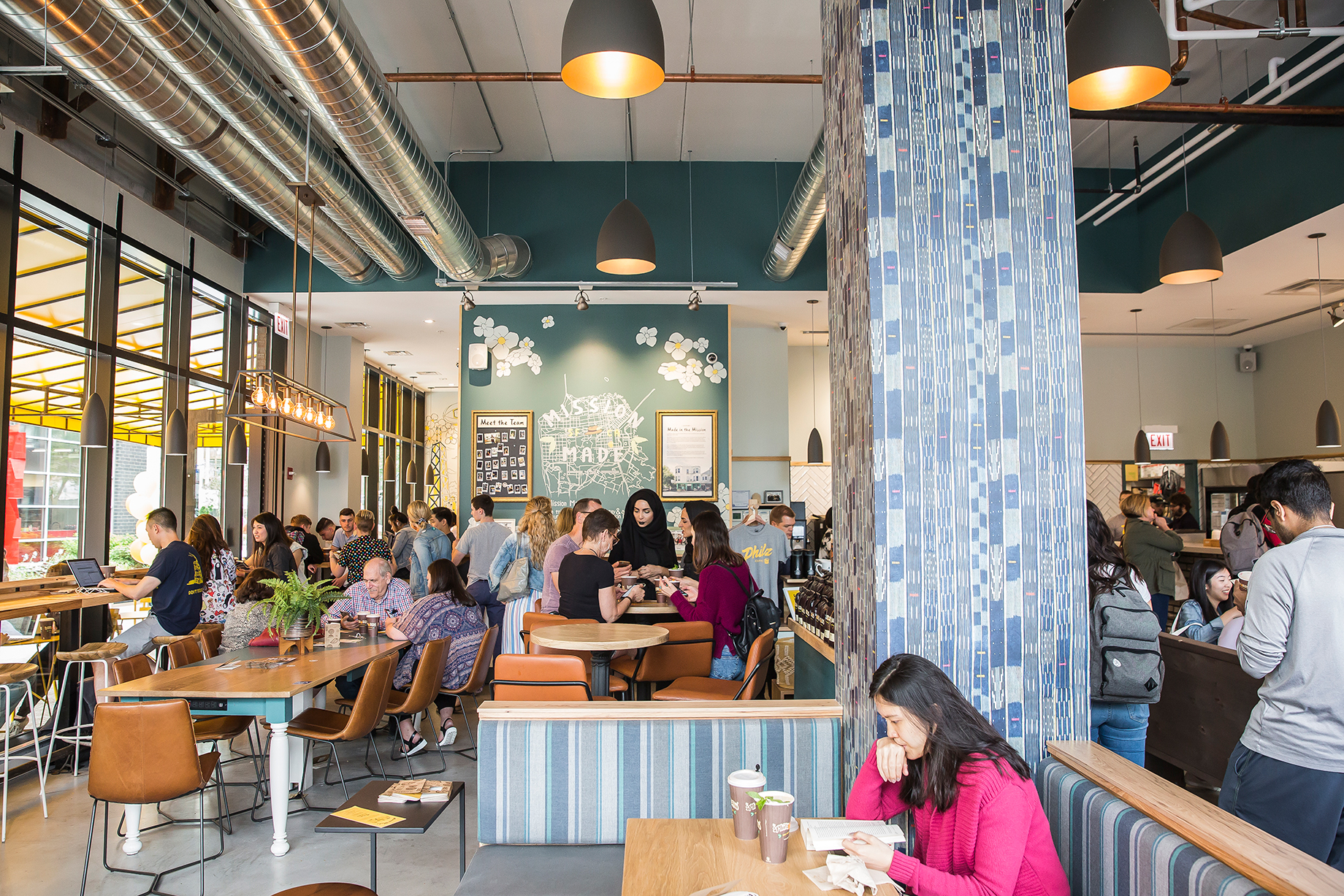
Philz Coffee
Phil Jaber spent decades experimenting in his own kitchen with various coffee brews and flavors, in search of the perfect combination. He began selling specialty coffee drinks out of his San Francisco convenience store, and in 2003 Jaber launched Philz Coffee. As of last January, the company was operating 55 Philz Coffee shops across Chicago; San Diego; San Francisco; and Washington, D.C. The company has plans to open an additional 10 shops this year. These shops typically measure between 1,200 and 2,000 square feet.
For real estate information, contact CFO Nick Severino, at nickseverino@philzcoffee.com.
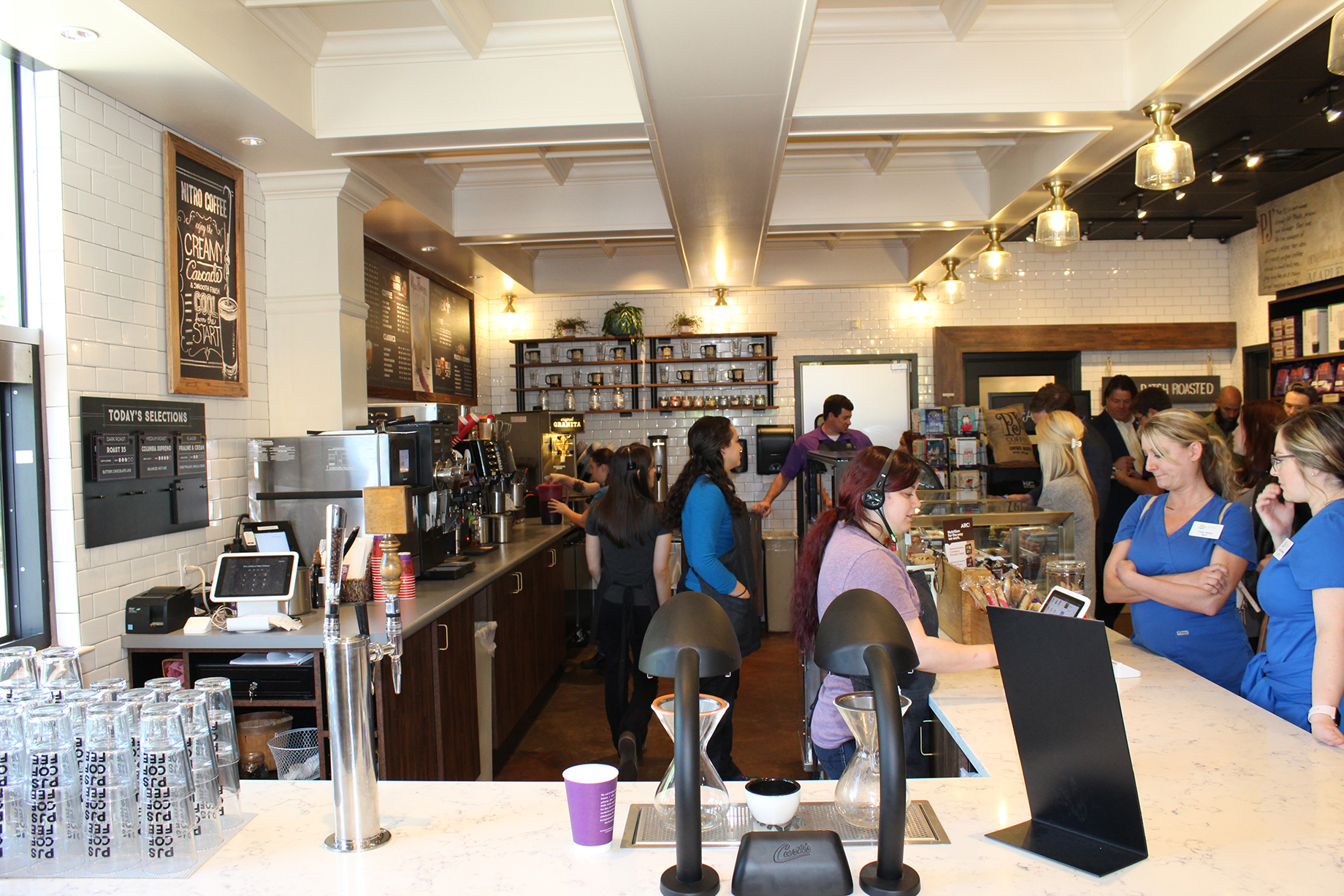
PJ’s Coffee of New Orleans
Phyllis Jordan founded PJ’s Coffee in 1978 in its eponymous home city. The company has since seen its following expand out to 15 states, though Jordan sold the business to Covington, La.–based Ballard Brands in 2008. As of last year, PJ’s operates at 112 locations. Expansion is being driven primarily through franchises, and the company says it expects to open about 40 of those this year. PJ’s has three operating models — coffee trucks, kiosks and full-service cafés. The company favors cafés with drive-throughs, which it says generate roughly 30 percent more in sales than do the shops without a drive-through.
Real estate information is available at realestate@ballardbrands.com.
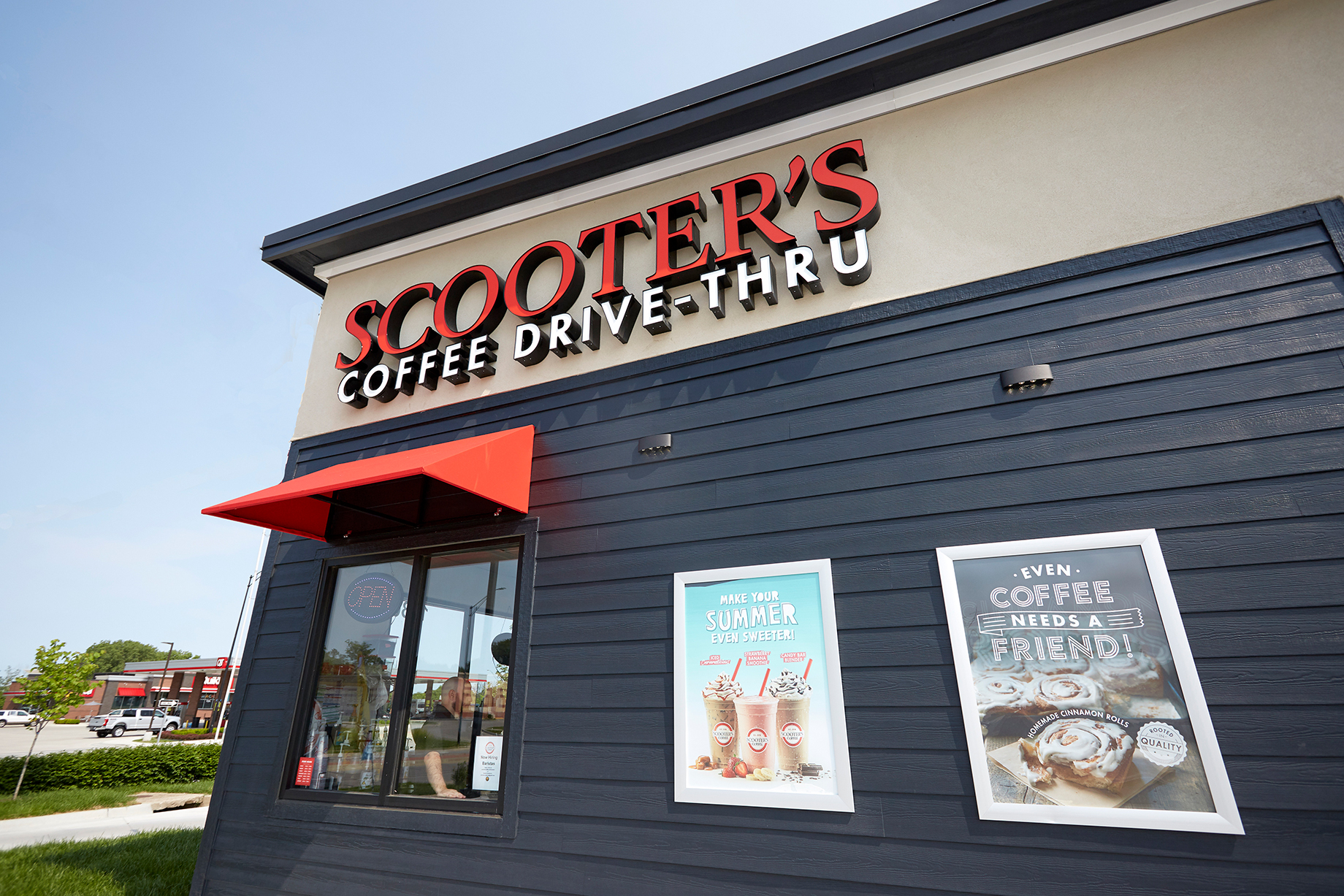
Scooter’s Coffee
Co-founders Don and Linda Eckles opened their first Scooter’s Coffee shop in 1998, in Bellevue, Neb. The company began franchising in 2001 and has since grown to nearly 300 shops across 15 states. Moreover, it opened 65 franchise units last year and says it aims to roll out between 80 and 100 more of these this year. Most of its outlets occupy 550-square-foot drive-through kiosks that serve hot and cold coffee, tea, smoothies and other specialty drinks.
For real estate information, contact Mike Michaelis, vice president of franchise development, at mike.michaelis@scooterscoffee.com.
By Beth Mattson-Teig
Contributor, Commerce + Communities Today


